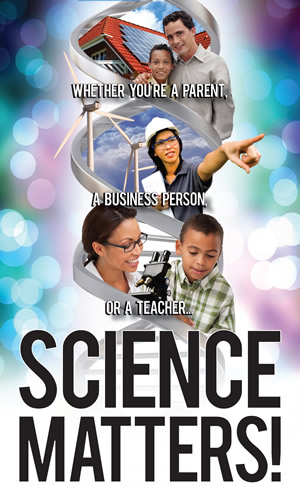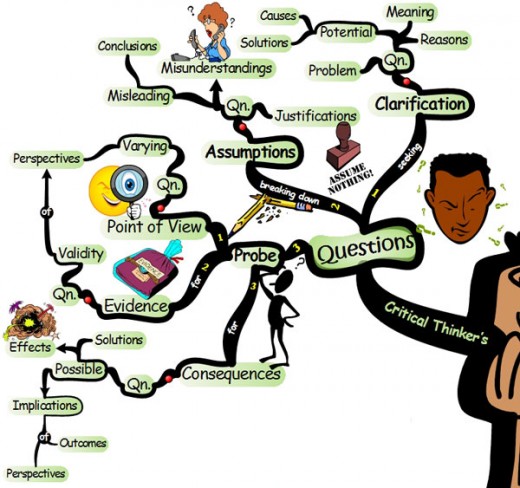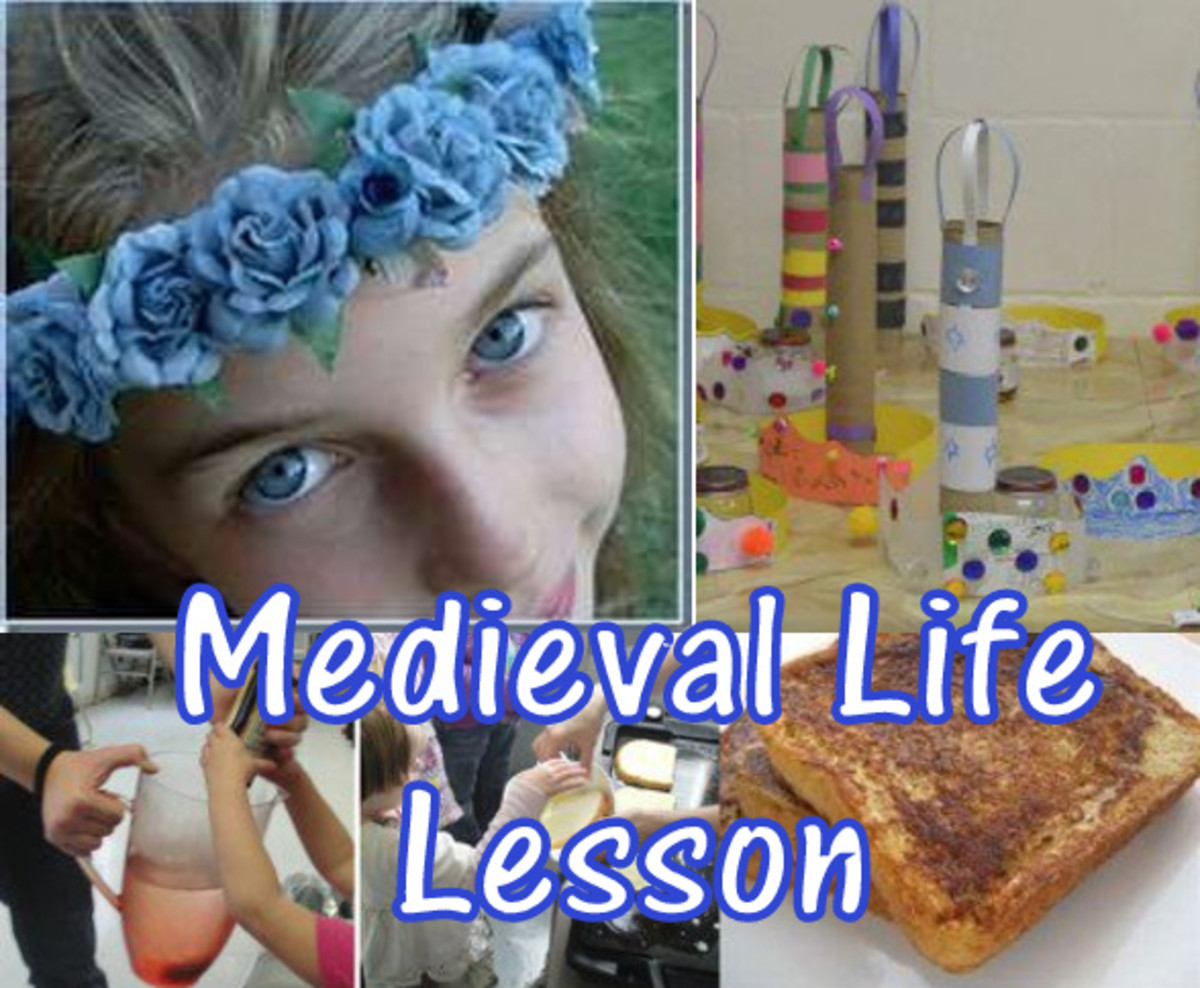Goals of Teaching Science
What got me to write this hub?
To my pleasant surprise, one of my fellow hubbers posed this question in the forum, "What are the major goals of teaching science?" This is one of those topics which I hold so close to my heart that the question inspired the birth of this hub, natural birth, without any researching. The points I bring to the table are absolutely from my personal experiences and unearth the reasons why I happened to be a science educator and will happily continue to be so.
About myself: I teach Chemistry in middle (10-13 years) and high school (14-17 years), both the national curriculum and International Baccalaureate (IB) programme in a well reputed school in New Delhi, India. I have completed five years of teaching in school, before which I was involved in scientific research towards my Ph.D. in Chemistry.
My goals when I teach science in the classroom are:

1. To stimulate my students to ask questions
Through science teaching, the first thing we teach the children is to ask questions. Discussing why, what, where, how and when of different things around us is the crux of being in a science classroom. We encourage them to enquire fearlessly about anything they perceive around them, we ignite curiosity in them and when as a teacher you see questions bubbling out of your students' heads, you are the most satisfied one, as you have created some questioning minds. Questioning is the first step to finding solution to any problem.
I do mention in all my classrooms, whether middle or high school students, "It is important for you to not accept anything and everything I say, you have the right to question unless you are convinced of what I am saying. Science classrooms will look dead without effective debates but we need to respect each other while carrying out these constructive arguments".
We must help them shed their inhibitions to ask questions in the first place.
2. To inspire appreciation for scientists and discoveries
In the science classroom, we need to occasionally tell stories behind important discoveries, children should be encouraged to appreciate the hard work and tenacity of scientists and the failures which led to successes eventually. Timelines and history of scientific growth should be discussed with our students through charts or projects and they need to realise/experience the excitement of new discoveries themselves through assignments like creating scientific models.
Appreciating the creative work of others adds value to children's lives and they can be made to dream big.
3. To foster a scientific mind: teaching higher order thinking skills
One of the most important aspects of teaching science is to foster in the children the scientific way of thinking. They should understand the scientific method, the logical way in which scientists rationalise based on evidences. They should be encouraged to make observations around them, in the garden, in the kitchen, in the laboratory and elsewhere and collect data while performing experiments. While training them to interpret data, analyse and present the data in a meaningful manner, we are teaching the higher order thinking skills.
According to Bloom's taxonomy, the six stages of thinking are knowledge, understanding, application, analysis, evaluation and synthesis. Teaching science incorporates all the orders of thinking and inculcates logical thought processes in the students. Students can be taught critical thinking, i.e solving problems in many possible ways; they can be taught creative thinking by assigning a task of making theme-based working models, design their own experiments for a specific investigation and so on.
Students should be trained in evaluating various sources, sort out meaningful information by effective research, analysing statistical data, carrying out experiments independently and come to conclusions based on their collected evidences.
Science teaching cultivates the entire process of organised thinking in the students.


4. To encourage my students to be effective communicators
We all know that in today's world, communication is the key. Through teaching science, we get opportunities to improve students' writing and verbal skills. We give them assignments like writing laboratory reports, taking note of detailed observations of the transformations taking place, explaining phenomena, reasoning and so on. We also give them space in the classroom to have discussion, to verbally explain the processes, to help a peer and in these ways we are carving an effective communicator out of them. Also, illustrations are extremely important in science teaching. Children need to learn how to depict a concept diagrammatically, explain a pictorial representation of a scientific phenomenon or analyse using graphical techniques.
Teaching science can immensely help the development of communication skills.
5. To cultivate a strong and flexible persona in my students
Risk taking attitude: True scientists are risk takers, they tread on unknown territories, explore new things, take up challenges and get excited about their discoveries. In the 21st century, we need to inculcate these traits in our students as they are more prone to face new kinds of problems in the real world, to survive situations not experienced before, to solve the cases not documented before, to treat diseases which did not exist before and so on.
Strong and determined character: Our students need to develop a strong attitude towards life and its issues. Let them realise that science is not all accurate, experiments are likely to fail, scientists take several hard working years to discover something path breaking. But the most important aspect is not to give up, to have the grit and determination to reach the set goals, to seek the reasons for failure and find effective ways to overcome the problems at the grass root level. More and more examples from scientific literature should be given to them, so that they can accept failure as means to learn something new.
Open minded nature: We need to foster open mindedness in our students and allow them to be flexible in their thinking. One problem can have several pathways of solutions, respect all the viewpoints of others and accept all the possible ways and then collaboratively and constructively sort out the best solutions. Through activities like debates, group discussions and peer evaluation in the science classroom, we should make an effort so that our students don’t turn out to be rigid about their beliefs and cultural backgrounds. They must grow into compliant human beings who will look at real situations from different perspectives.
Through the knowledge of science, the oneness of the universe, the interdependence of the nations in the world, we can turn our students to be uninhibited risk-takers, have an open mind and face life with confidence and inner strength.
Science teaching can play a big role in creating wholesome personality in our youngsters so that they coexist with other human beings, diverse species and the environment peacefully.








